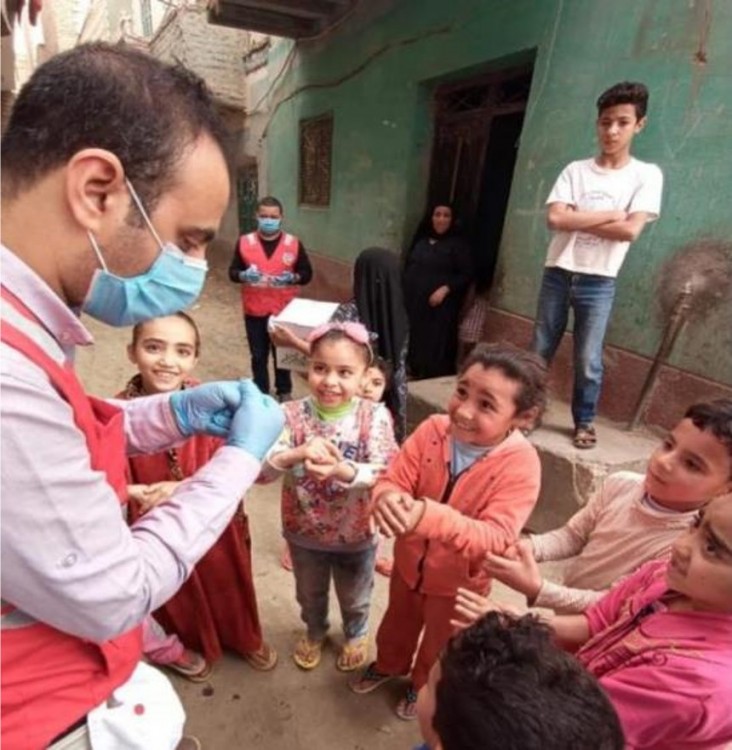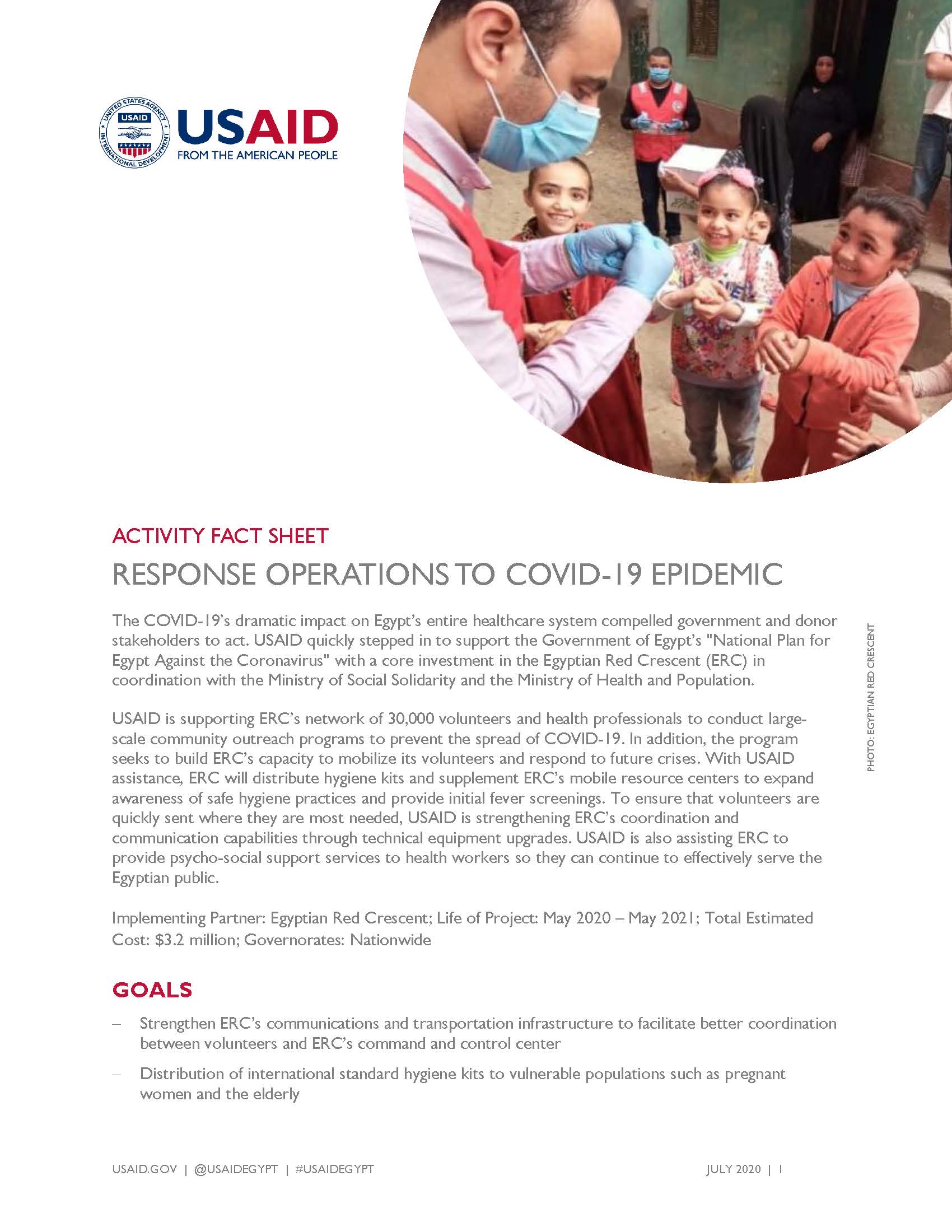Speeches Shim

COVID-19’s dramatic impact on Egypt’s entire healthcare system compelled government and donor stakeholders to act. USAID quickly stepped in to support the Government of Egypt’s "National Plan for Egypt Against the Coronavirus" with a core investment in the Egyptian Red Crescent (ERC) in coordination with the Ministry of Social Solidarity and the Ministry of Health and Population.
USAID is supporting ERC’s network of 30,000 volunteers and health professionals to conduct large-scale community outreach programs to prevent the spread of COVID-19. In addition, the program seeks to build ERC’s capacity to mobilize its volunteers and respond to future crises. With USAID assistance, ERC will distribute hygiene kits and supplement ERC’s mobile resource centers to expand awareness of safe hygiene practices and provide initial fever screenings. To ensure that volunteers are quickly sent where they are most needed, USAID is strengthening ERC’s coordination and communication capabilities through technical equipment upgrades. USAID is also assisting ERC to provide psycho-social support services to health workers so they can continue to effectively serve the Egyptian public.
Implementing Partner: Egyptian Red Crescent; Life of Project: May 2020 – May 2021; Total Estimated Cost: $3.2 million; Governorates: Nationwide
GOALS
- Strengthen ERC’s communications and transportation infrastructure to facilitate better coordination between volunteers and ERC’s command and control center
- Distribution of international standard hygiene kits to vulnerable populations such as pregnant women and the elderly
- Procure materials and equipment as well as support staffing for seven mobile community resource centers
- Provide 24/7 psychosocial support services to healthcare workers through a dedicated hotline staffed by trained ERC volunteers
EXPECTED RESULTS
- Improve monitoring, communication, and interaction with local first responders and the national headquarters; improved capacity of ERC to support large-scale national response operations
- Strengthen communications resources to ensure that ERC is able to conduct remote training and provide remote counseling while maintaining social distancing precautions
- Distribute 100,000 hygiene kits and amplification of Ministry of Health and Population’s behavior change messaging promoting proper hygiene and sanitation
- Create seven mobile community resource centers that provide information on healthy hygiene practices, conduct initial fever screenings, and recommend referrals to hospitals
- Provide care for Egypt’s healthcare workers from trained psychosocial service volunteers in a manner that protects individual privacy and supports their continued service despite the pandemic’s personal and professional pressures



Comment
Make a general inquiry or suggest an improvement.